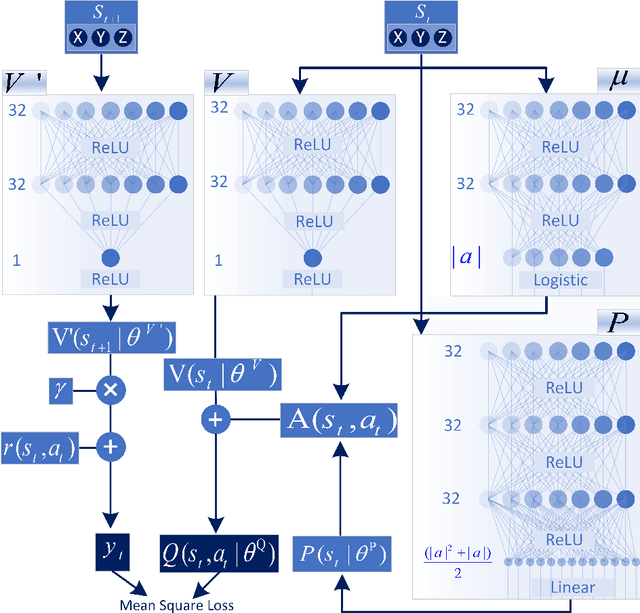Muscle Excitation Estimation in Biomechanical Simulation Using NAF Reinforcement Learning
Paper and Code
Sep 17, 2018


Motor control is a set of time-varying muscle excitations which generate desired motions for a biomechanical system. Muscle excitations cannot be directly measured from live subjects. An alternative approach is to estimate muscle activations using inverse motion-driven simulation. In this article, we propose a deep reinforcement learning method to estimate the muscle excitations in simulated biomechanical systems. Here, we introduce a custom-made reward function which incentivizes faster point-to-point tracking of target motion. Moreover, we deploy two new techniques, namely, episode-based hard update and dual buffer experience replay, to avoid feedback training loops. The proposed method is tested in four simulated 2D and 3D environments with 6 to 24 axial muscles. The results show that the models were able to learn muscle excitations for given motions after nearly 100,000 simulated steps. Moreover, the root mean square error in point-to-point reaching of the target across experiments was less than 1% of the length of the domain of motion. Our reinforcement learning method is far from the conventional dynamic approaches as the muscle control is derived functionally by a set of distributed neurons. This can open paths for neural activity interpretation of this phenomenon.
 Add to Chrome
Add to Chrome Add to Firefox
Add to Firefox Add to Edge
Add to Edge